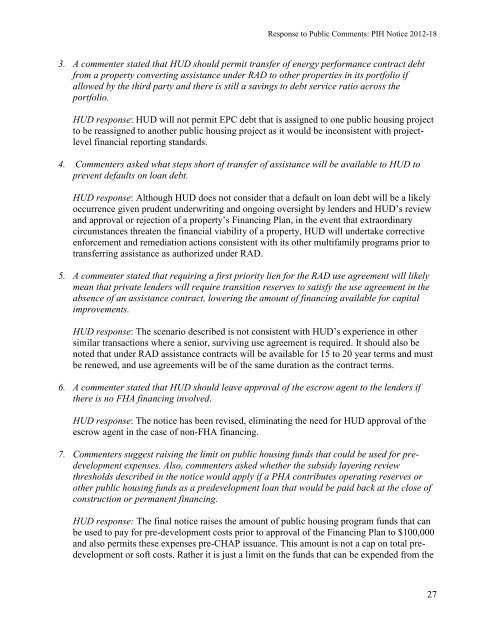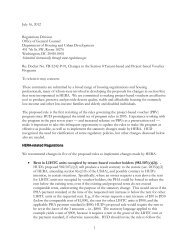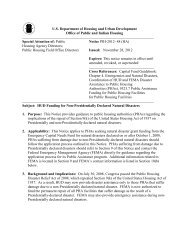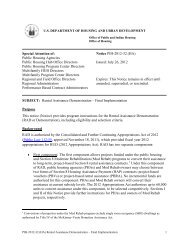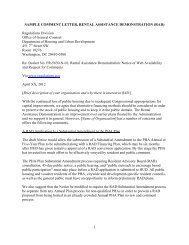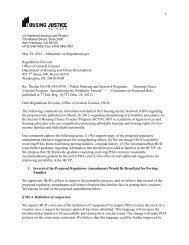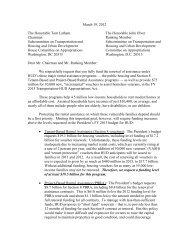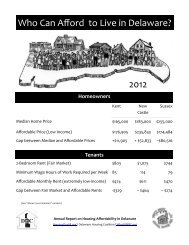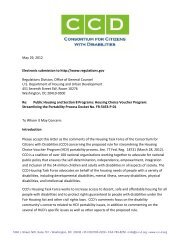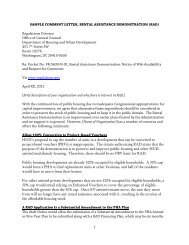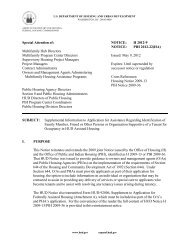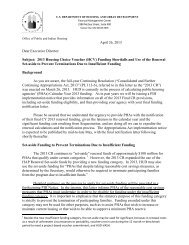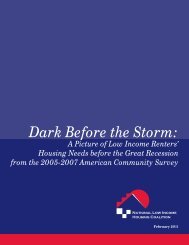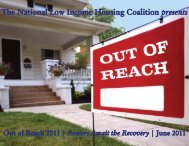RESPONSE TO PUBLIC COMMENTS: PIH NOTICE 2012-18 ... - HUD
RESPONSE TO PUBLIC COMMENTS: PIH NOTICE 2012-18 ... - HUD
RESPONSE TO PUBLIC COMMENTS: PIH NOTICE 2012-18 ... - HUD
Create successful ePaper yourself
Turn your PDF publications into a flip-book with our unique Google optimized e-Paper software.
Response to Public Comments: <strong>PIH</strong> Notice <strong>2012</strong>-<strong>18</strong>3. A commenter stated that <strong>HUD</strong> should permit transfer of energy performance contract debtfrom a property converting assistance under RAD to other properties in its portfolio ifallowed by the third party and there is still a savings to debt service ratio across theportfolio.<strong>HUD</strong> response: <strong>HUD</strong> will not permit EPC debt that is assigned to one public housing projectto be reassigned to another public housing project as it would be inconsistent with projectlevelfinancial reporting standards.4. Commenters asked what steps short of transfer of assistance will be available to <strong>HUD</strong> toprevent defaults on loan debt.<strong>HUD</strong> response: Although <strong>HUD</strong> does not consider that a default on loan debt will be a likelyoccurrence given prudent underwriting and ongoing oversight by lenders and <strong>HUD</strong>‟s reviewand approval or rejection of a property‟s Financing Plan, in the event that extraordinarycircumstances threaten the financial viability of a property, <strong>HUD</strong> will undertake correctiveenforcement and remediation actions consistent with its other multifamily programs prior totransferring assistance as authorized under RAD.5. A commenter stated that requiring a first priority lien for the RAD use agreement will likelymean that private lenders will require transition reserves to satisfy the use agreement in theabsence of an assistance contract, lowering the amount of financing available for capitalimprovements.<strong>HUD</strong> response: The scenario described is not consistent with <strong>HUD</strong>‟s experience in othersimilar transactions where a senior, surviving use agreement is required. It should also benoted that under RAD assistance contracts will be available for 15 to 20 year terms and mustbe renewed, and use agreements will be of the same duration as the contract terms.6. A commenter stated that <strong>HUD</strong> should leave approval of the escrow agent to the lenders ifthere is no FHA financing involved.<strong>HUD</strong> response: The notice has been revised, eliminating the need for <strong>HUD</strong> approval of theescrow agent in the case of non-FHA financing.7. Commenters suggest raising the limit on public housing funds that could be used for predevelopmentexpenses. Also, commenters asked whether the subsidy layering reviewthresholds described in the notice would apply if a PHA contributes operating reserves orother public housing funds as a predevelopment loan that would be paid back at the close ofconstruction or permanent financing.<strong>HUD</strong> response: The final notice raises the amount of public housing program funds that canbe used to pay for pre-development costs prior to approval of the Financing Plan to $100,000and also permits these expenses pre-CHAP issuance. This amount is not a cap on total predevelopmentor soft costs. Rather it is just a limit on the funds that can be expended from the27


